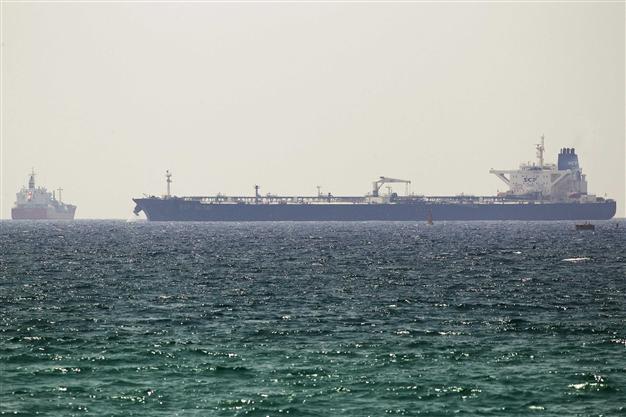Iraqi Kurdish oil nears US port despite concern in Washington
LONDON/BAGHDAD/WASHINGTON - Reuters

REUTERS Photo
A tanker carrying crude oil from Iraqi Kurdistan is just two days away from arriving at a U.S. port, according to ship tracking satellites, despite Washington’s long-standing concern over independent oil sales from the autonomous region.The United Kalavrvta tanker, which left the Turkish port of Ceyhan in June carrying oil delivered via a new Kurdish pipeline, was due to dock in Galveston, Texas on July 26, Reuters AIS Live ship tracking shows.
A sale of Kurdish crude oil to a U.S. refinery would infuriate Baghdad, which sees such deals as smuggling, and raises questions about Washington’s commitment to preventing oil sales from the autonomous region.
Washington has expressed fears that independent oil sales from Kurdistan could contribute to the break-up of Iraq as the government in Baghdad struggles to contain Sunni Islamist insurgents that have captured vast swathes of the country.
But it also has grown frustrated with Prime Minister Nuri al-Maliki’s handling of the crisis.
Washington has pressured companies and governments not to buy crude from the Kurdish Regional Government (KRG), but it has stopped short of banning U.S. firms from buying it outright.
The Kurdish Regional Government (KRG) has renewed its push for an independent state amid the latest violence roiling Iraq. Its relationship with Baghdad has deteriorated over what it sees as Maliki’s role in stoking the crisis and over the long-running dispute over oil sales.
On July 24 Carlos Pascual, head of the U.S. State Department’s Energy Bureau, told Reuters that there had been no change of policy in Washington towards Kurdish independent oil sales, but he said he hoped the central government and the region could reach an agreement in time.
Baghdad has threatened to sue anyone that buys Kurdish oil.
“We have made people aware that whatever they buy entails certain risks, and we have consistently told them about that,” Pascual said after a talk at Washington’s Carnegie Endowment.
“At some point Baghdad and Arbil have to come to an understanding of how the development and the export of those resources can contribute to Iraq’s overall development,” he said in a speech, one of his last official events before taking up a fellowship at Columbia University in New York.
Pascual said that without a deal, conflict between the two sides risked becoming “more acute.”
The KRG has been emboldened amid the latest crisis in Iraq to take control of the long-disputed oil city of Kirkuk and to increase its territory by more than third as Iraqi forces fled the onslaught of Sunni insurgents aligned with the Islamic State of Syria and the Levant (ISIL).
Trading sources in Texas, New York, London and Geneva have been unable to identify the buyer of the United Kalavrvta tanker’s cargo.
The ship carries approximately 1 million barrels of crude, which would fetch more than $100 million at international prices.
The tanker still could change course and head away from the United States to Mexico or another country in Central or South America.
The last signal received from its satellite tracking system was at 07:37 a.m. GMT July 24, indicating it may have turned the transponder off.
An official at SOMO, Iraq’s central state oil marketer, reiterated on July 24 that it would sue any company buying Kurdish oil and blacklist them from deals for Iraq’s sizeable crude exports.
The first tanker carrying crude from the Kurdish pipeline set sale from Ceyhan in May. Three others have sailed since then, but only one of the four has been delivered so far - into an Israeli port after a ship-to-ship transfer.
The first, the United Leadership, has been moored off the coast of Morocco for more than a month, while another is now sailing towards Asia without a clear buyer listed.
As the United Kalavrvta crossed the Atlantic, it was originally listed as sailing to Brazil, though without a specific buyer named in shipping fixtures.
















